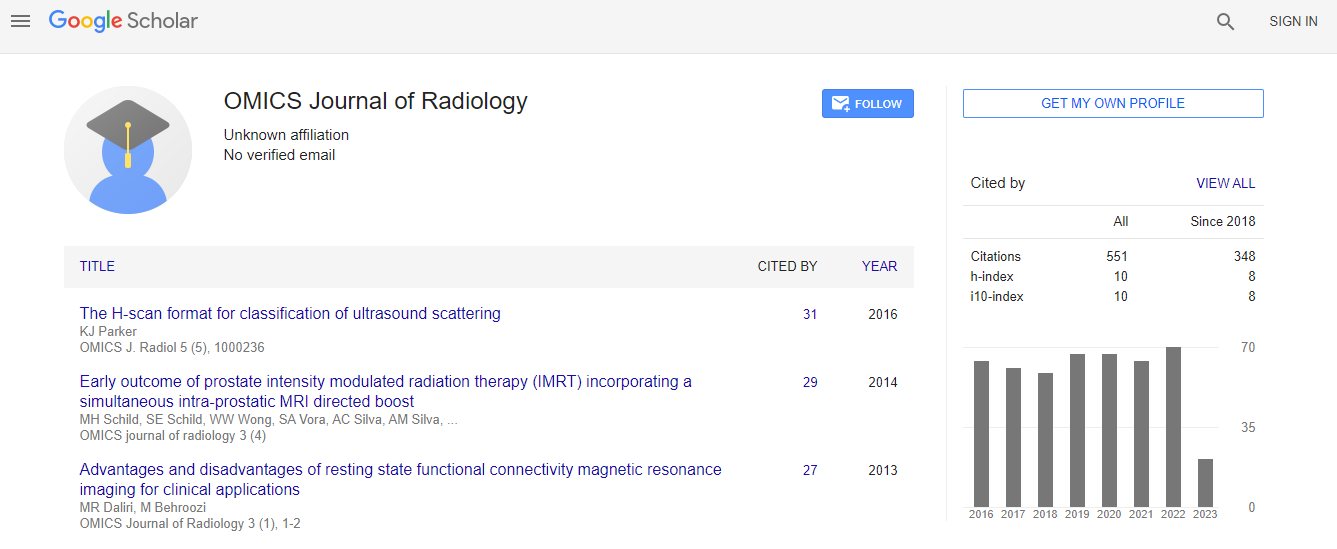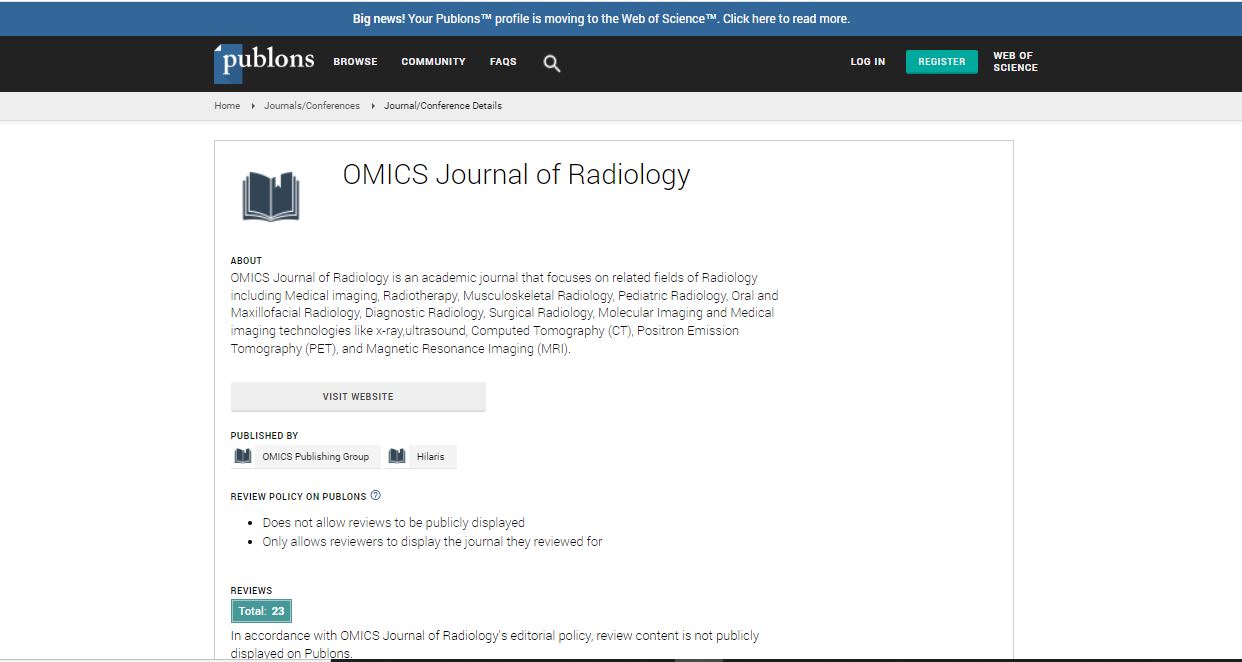Our Group organises 3000+ Global Conferenceseries Events every year across USA, Europe & Asia with support from 1000 more scientific Societies and Publishes 700+ Open Access Journals which contains over 50000 eminent personalities, reputed scientists as editorial board members.
Open Access Journals gaining more Readers and Citations
700 Journals and 15,000,000 Readers Each Journal is getting 25,000+ Readers
Google Scholar citation report
Citations : 551
Journal of Radiology received 551 citations as per Google Scholar report
Journal of Radiology peer review process verified at publons
Indexed In
- Index Copernicus
- Google Scholar
- Open J Gate
- Genamics JournalSeek
- ResearchBible
- Electronic Journals Library
- RefSeek
- Hamdard University
- EBSCO A-Z
- OCLC- WorldCat
- SWB online catalog
- Virtual Library of Biology (vifabio)
- Publons
- Geneva Foundation for Medical Education and Research
- ICMJE
Useful Links
Share This Page
Clinical importance of circulating EGFR mRNA expression in non-small cell lung cancer patients
2nd World Congress on Radiology and Oncology
Mirza Masroor Ali Beg, Prasant Yadav, Alpana Saxena and Anant Mohan
Maulana Azad Medical College, IndiaAll India Institute of Medical Sciences, India
Posters & Accepted Abstracts: OMICS J Radiol
Abstract
Background: Non-Small Cell Lung Cancer (NSCLC) is a disease involving uncontrolled cell growth, which could result in metastases into nearby tissues beyond the lungs. The molecular mechanisms involved in NSCLC are still relatively unknown and are being investigated extensively. Materials & Method: Present study aimed to analyze the importance of Epidermal Growth Factor Receptor (EGFR) gene expression on metastasis and survival in Indian NSCLC patients. The present case-control study included 100 cases of NSCLC patients and 100 age- and sex-matched controls. EGFR gene expression was analyzed by quantitative real time PCR using serum RNA. Association with NSCLC patient survival was analyzed by the Kaplan-Meier method. Result: We analyzed circulating EGFR gene expression and observed mean increased gene expression of 13.5-fold in NSCLC patients. Patients in stage-1 showed 4.07-fold increased EGFR gene expression, stage-2 showed 7.08-fold increased gene expression while in stage-3 and 4 showed 14.81 and 18.35-fold increased gene expression respectively (p<0.0001). Patients with distant organ metastases had 18.35-fold increased gene expression compared to without metastases had 9.86-fold increased gene expression (p<0.0001). Values reflected overall survival of patients with a median of 15.8 months in the cases of <13-fold increased gene expression vs. 6.7 months with >13-fold increased EGFR gene expression (p=0.005). Distant metastatic patients with <13-fold increased EGFR gene expression had 7.9 months of median survival time while>13-fold increased EGFR gene expression had only 5 months of median survival time (p=0.03). Non-metastatic patients with <13-fold increased EGFR gene expression had 18 months of median survival time as compared to only 7.1 months with >13-fold increased expression. Conclusion: Higher circulating EGFR mRNA expression may play an important role in cause of distant metastases and decreased overall survival of NSCLC patients in the Indian population.Biography
E-mail: mirzamasroor1986@gmail.com

 Spanish
Spanish  Chinese
Chinese  Russian
Russian  German
German  French
French  Japanese
Japanese  Portuguese
Portuguese  Hindi
Hindi 
